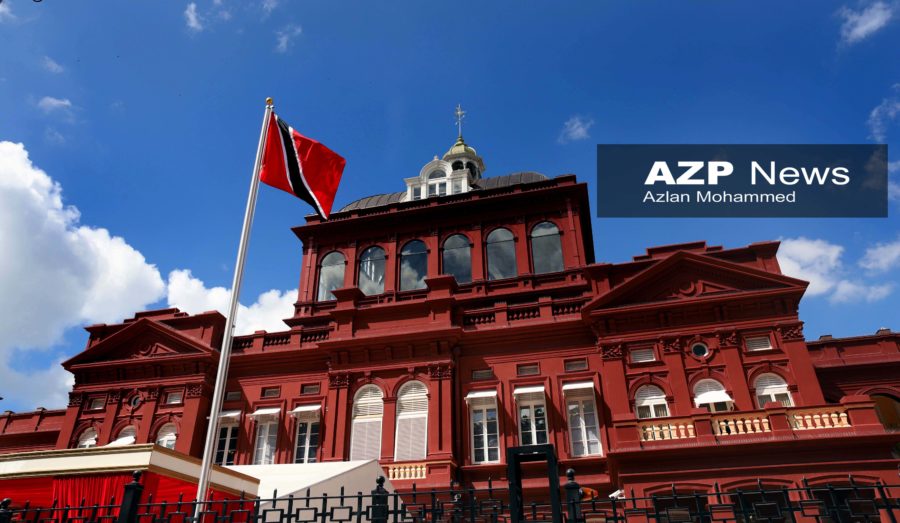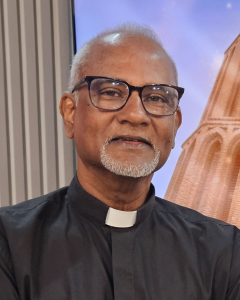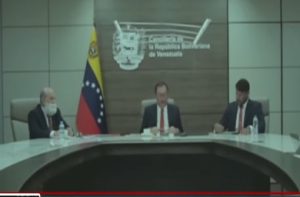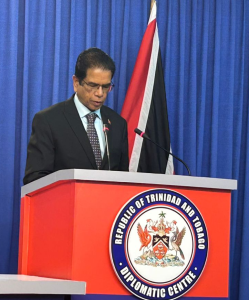By Ravi Nanga
AS the country and the world at large continues to grapple with the 2019 novel coronavirus, we are constantly traversing unchartered territory and being confronted by many unknowns for which there are no discernible answers.
Notwithstanding the unprecedented times that we are in, it has not escaped some that we are in the year 2020, which is the fifth year of the existing session of the current Parliament.
Simply put a general election is constitutionally due by the end of this year. Questions have been raised as to the potential effect that this pandemic may have on the calling of an election this year.
I propose to examine the relevant legislation that makes provision for the dissolution of Parliament and the calling of a general election and whether there are any circumstances in which a general election can be postponed beyond its constitutionally due date. There has never been the need to consider such an eventuality in this country; testimony to the unchartered territory that we are now traversing.
Part III of The Constitution of Trinidad and Tobago makes provision for the Summoning, Prorogation and Dissolution of Parliament and prescribes the manner in which a general election is called.
Pursuant to section 68(1) of the Constitution the decision as to when a general election is to be held rests solely with the prime minster. However, in order to prevent potential abuse of that power, section 68(2) provides, inter alia, that Parliament shall continue for five years from the date of its first sitting and then it shall stand dissolved. Accordingly, Parliament shall stand dissolved five years after its first sitting of that Parliament regardless of whether the prime minister dissolves Parliament or not.
Section 68(3) of the Constitution provides that if Trinidad and Tobago is at war, Parliament may extend the five year period provided in subsection (2) for not more than twelve months at a time, up to a maximum of another five years. It should be emphasized that in times of war, it is Parliament which has the power to extend its life. Accordingly, in the event of an outbreak of war, meaning an armed conflict, an existing Parliament can exist for a maximum of ten years. Outside of the outbreak of war, Parliament exists for a period of five years.
However, outside of the outbreak of war, under The Constitution, there is no power to extend the life of Parliament and postpone a general election. Section 69(1) of The Constitution provides that a general election must be held at any time within three months after the dissolution of Parliament.
Therefore, simply put, the prime minister has the power to dissolve Parliament at anytime within five years of the first sitting of that session of Parliament and to announce the date for the holding of a general election anytime within three months of the dissolution.
If the prime minister fails to dissolve Parliament within a five-year period, Parliament will automatically dissolve five years after the first sitting and the prime minister will then be required to call the general election within three months of the dissolution. The exception to that is in the event of war, in which case Parliament may extend its life beyond the five-year period, up to a maximum of five years.
Once Parliament has been dissolved and a date for the general election has been announced, the Representation of the People Act (hereinafter referred to as “ROPA”) is then triggered.
This Act contains the provisions for the manner in which the general election is to be conducted.
Upon the announcement of the date for the general election, section 33(1) of ROPA provides that the President shall issue a writ of election, which is in essence the beginning of the general election, which culminates in the taking of the poll and the declaration of the winner.
The writ of election is required to state the date for the taking of the poll. Relevant for the purposes of this article is section 34(1) of ROPA. Section 34(1) provides the circumstances in which the taking of the poll can be adjourned or postponed for a period not exceeding thirty days.
Circumstances warranting the postponement of the taking of the poll include the existence of war, the declaration of a state of emergency or the outbreak of an infectious disease. Please note that in this circumstance, Parliament would have already been dissolved and the former Parliament can only be reconvened in Emergency Session.
When we examined extending the life of Parliament under The Constitution above in the event of the outbreak of war, Parliament would not have as yet been dissolved so that its life could have been extended. Once Parliament is dissolved, it is the taking of the poll that can be extended under the provisions of ROPA.
Therefore, in summary, there is a distinction between extending the life of Parliament under the provisions of The Constitution in the event Trinidad and Tobago is experiencing war and the postponement of the holding of the poll when the date for the general election has been announced following the dissolution of Parliament.
It would appear that what we are currently experiencing due to the effects of the Covid-19 pandemic is not a reason by which the life of Parliament can be extended.
However, once Parliament is dissolved and the date for the general election is announced, in the event there is an outbreak of cases of the virus, the President can extend the period for the taking of the poll by no more than thirty days.
Ravi Nanga is an attorney-at-law.
(Please note that this article is intended only to provide general information on the topic being addressed and should not be taken as providing legal advice).
![]()













